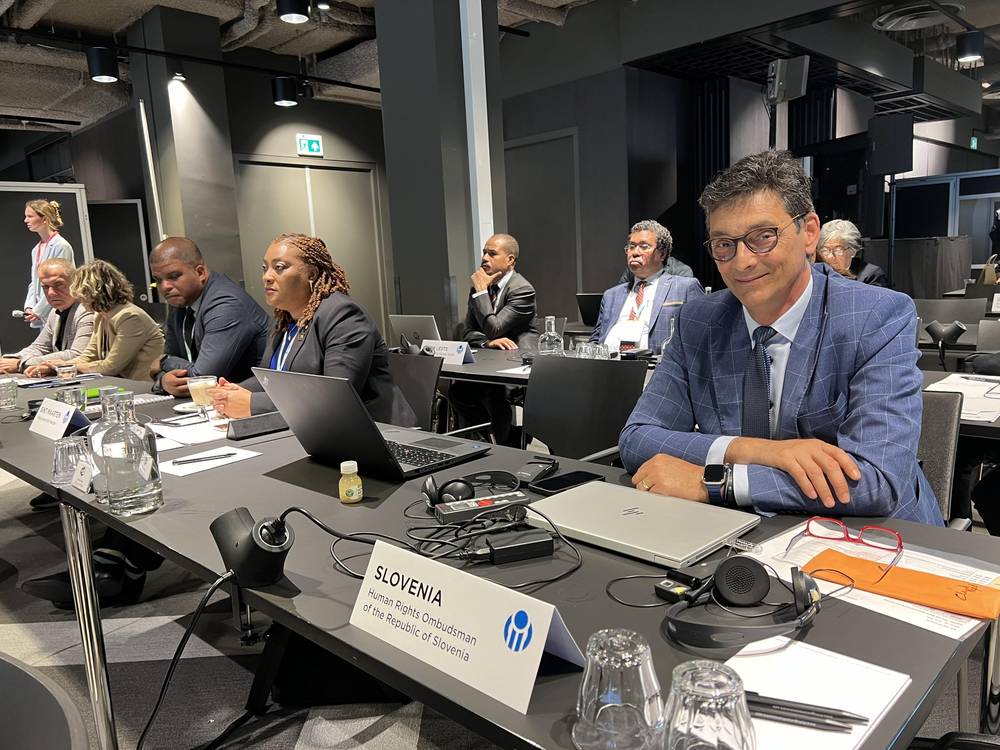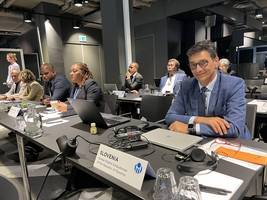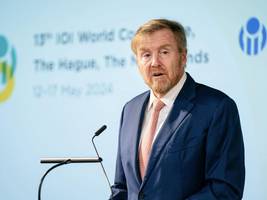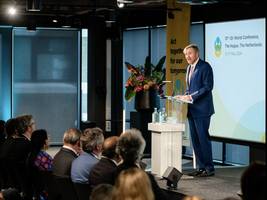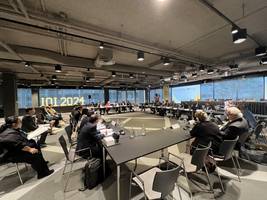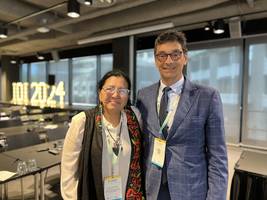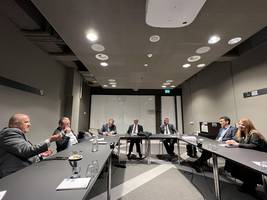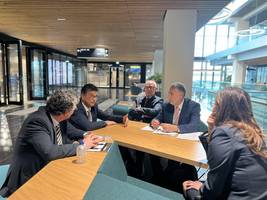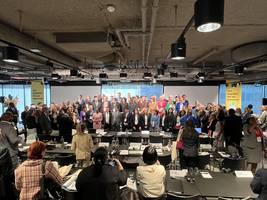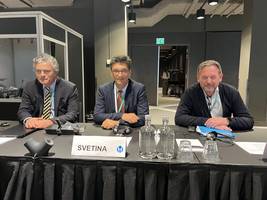Human Rights Ombudsman Peter Svetina participates at the 13th World Conference of the International Ombudsman Institute (IOI), which was opened by the Dutch king Willem-Alexander, in the Hague, the Netherlands, from 12 to 17 May 2024. Under the motto 'Working Together for Our Tomorrow' it unites 273 participants. “Such events are an excellent platform for the exchange of experience and viewpoints on numerous challenges we face in the protection of human rights. Radical geopolitical changes are becoming a regularity, we are dealing with the erosion of democratic norms and values, with the revolution in the fields of smart technology and artificial intelligence, while at the same time our planet is more and more endangered by the minute due to climate change,” said Svetina. He continued that together with his colleagues from more than 80 countries they discussed the role of the institute of the ombudsman, which is not limited only to protecting rights of citizens and presenting recommendations to decision-makers but also in the discussion of wider social questions, strengthening of democracy and rule of law, and collaboration between related institutions.
“Me and my colleagues agreed that the role of ombudsmen or national human rights institutions in solving the most pressing challenges we are facing is extremely important. Strong, professional, independent, and efficient national institutions are certainly one of the criterions of the functioning of the rule of law. Education, raising awareness, promotion, strengthening of the culture of respecting human rights, ensuring greater accessibility to legal means, and expansion and strengthening of informal forms of protection of human rights are essential,” said the Ombudsman. He emphasised the principles of transparency, fairness, objectivity, impartiality, and proactive operation and communication, especially with vulnerable groups. “Proactivity must be our constant commitment, the same goes for the dialogue with civil society organisations and the direct contact with people in the field for which it increasingly seems that, in the era of technological advancement and wider use of digital technologies, is slipping into the background,” highlighted Svetina. He presented the practice of the so-called Ombudsman’s Corners which he has set up in almost 80 municipalities across Slovenia and which help the Slovenian institution of the Ombudsman come closer to people directly in their environment.
He added that institutes of the ombudsman must also keep adapting and face challenges brough about by the digital environment. He especially emphasised that the institution of the Ombudsman supports the efforts of the Council of Europe for the arrangement of the development and use of artificial intelligence based on the standards of human rights, democracy, and rule of law. “The Slovenian Ombudsman has not yet come across concrete examples of the abuse of artificial intelligence at the national level, but we remain cautious since in addition to numerous benefits of the artificial intelligence this field also has a plethora of potential perils for human rights.” He also brought attention to the significance of inclusive digitalisation, fight against online frauds and violence, and digital literacy. “Technology is developing much faster than our attitude towards our fellow human beings, hence it can be useful as a guide to progress but only if we know how to use it correctly,” he stressed. Steps from the forming of provisions in the Universal Declarations of Human Rights from 1948 to their realisation in practice are frequently very slow and occasionally headed in the wrong direction, yet Svetina believes that it is exactly this that is one of the most important segments in establishing democratic principles, social integration, accepting differences, and in our attitude towards our fellow men,” said Ombudsman Svetina.
Participants devoted special attention also to challenges faced by the newly-elected ombudspersons. The exchange of experience and best practices provided valuable guidelines for new human rights ombudspersons, but also for the existing ones who will be able to use best practice examples from other countries in their own work. They agreed that only through joint efforts we can create a society that is just, fair, and inclusive. Namely, it is the care for our fellow men that can create conditions for quality-based life of the entire community. Upon the closing of the conference, they unanimously reaffirmed the commitment of the national human rights institutions to support democratic values, encourage responsibility, and strive for rights and prosperity of all citizens, which was after all emphasised also in The Hague Declaration.
At the edge of the 13th IOI international conference, the European and the World Board of Directors met, while the newly-elected presidential board started its term at the meeting in the Hague. The new President became Nashieli Ramírez Hernández, also the President of the Human Rights Commission from Ciudad de México, the First Vice-President is Mohamed Benalilou, the Human Rights Ombudsman from Morocco, and the Second Vice-President is Peter Boshier, the Ombudsman of New Zealand. Slovenian Human Rights Ombudsman Peter Svetina was re-elected to the IOI World Board of Directors and as one of the directors represents the European part of the IOI. At the conference in the Hague, both the resigning and the newly-elected boards met, as did the leadership of the Association of Mediterranean Ombudsmen in which Svetina is Vice-President.
* * *
IOI, founded in 1978, unites more than 200 ombudsman organisations across the world, while its work is dedicated to human rights and fundamental freedoms. Since the beginning of its operation, the institution of the Human Rights Ombudsman of the Republic of Slovenian has been its member.
